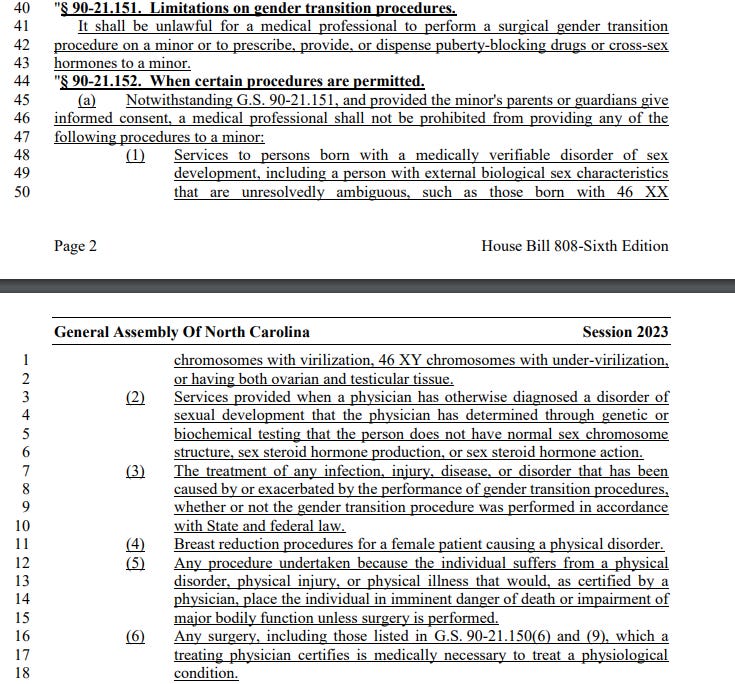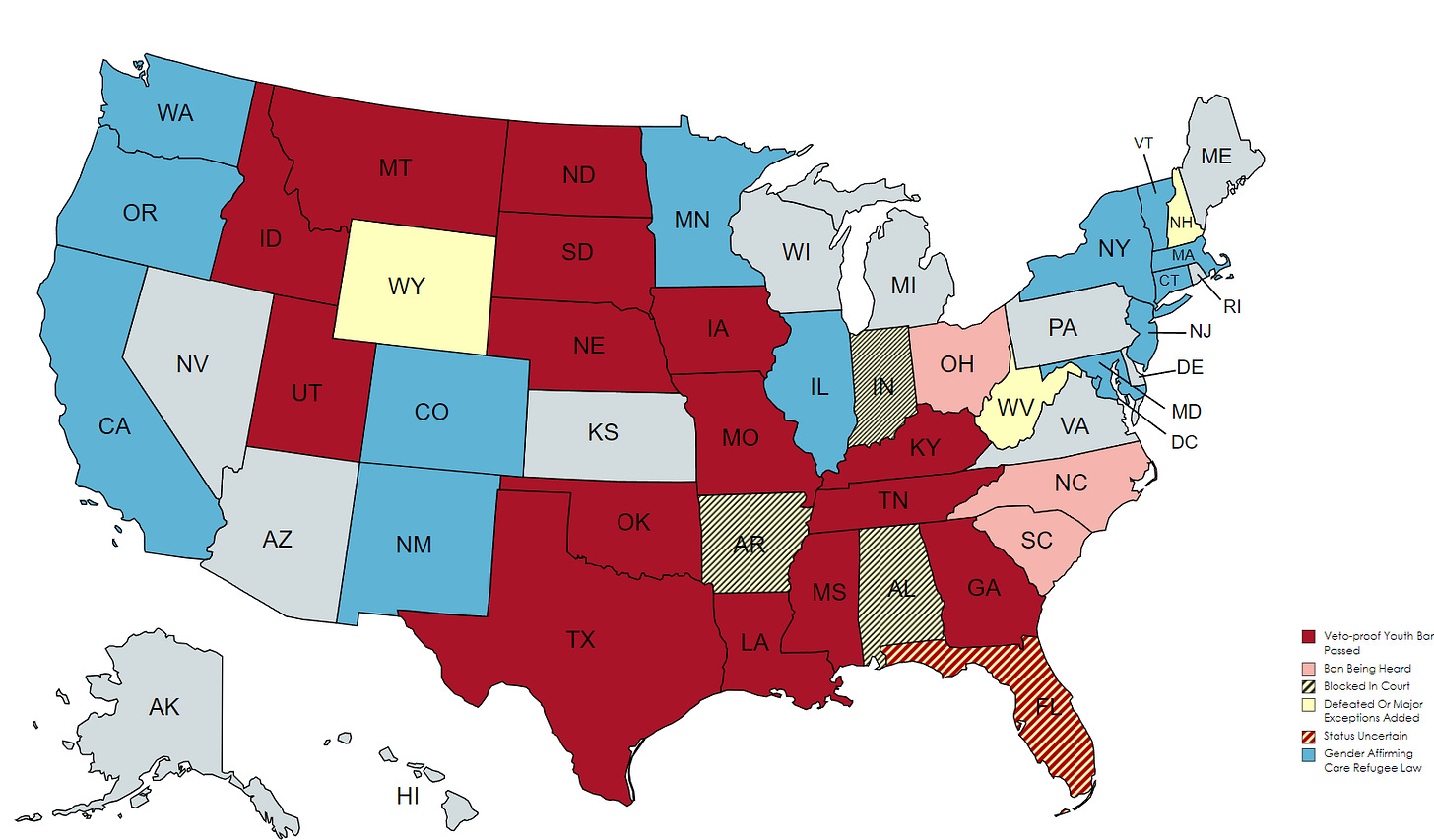North Carolina Advances Trans Ban Ruled Unconstitutional In Other States
A bill moving through North Carolina previously would have banned state facilities from providing gender affirming care to trans youth. Now, the senate has amended it to be a total ban on care.
On Tuesday, in a sudden legislative maneuver, North Carolina advanced towards becoming the 20th state to outlaw gender-affirming care for transgender minors. The development took place in the Senate, which was hearing House Bill 808 – initially aimed at prohibiting gender-affirming procedures for trans youth in state-run facilities. However, an amendment was introduced that expanded the scope of the ban to encompass all medical care for transgender minors within the state.
This move marked a sharp departure for North Carolina, which had until this point shown little inclination for legislation aimed at the transgender community following the ill-fated anti-transgender bathroom bill of 2016.
The amended bill is now slated to return to the House for final approval.
HB808 contains several clauses that specifically target transgender minors, while leaving similar medical care for other demographics untouched. Notably, such selective provisions have been the downfall of comparable bills in Florida, Indiana, Alabama, and Arkansas, where federal courts have ruled that these stipulations breach constitutional principles regarding equal protection. HB808 is nearly identical to all of these bills and will likely meet the same fate should it pass.
You can see the prohibitions on care and special carveouts here:
The bill seeks to prohibit hormone therapy, puberty blockers, and surgeries for gender transition for transgender youth. Moreover, it expands the liability window for medical professionals involved in transgender procedures for minors to an unprecedented 25 years, which adds an extra layer of prohibition on the care.
In contrast, the bill explicitly permits these medical interventions for intersex infants, who are not able to assent to care. Additionally, the bill does not restrict these procedures for various other medical conditions such as precocious puberty, endocrine disorders, being short of stature, gynecomastia, and more.
This selective prohibition uniquely affecting transgender youth has been interpreted as an unconstitutionally discriminatory measure based on sex in recent Indiana, Florida, and Arkansas rulings. It mirrors the language and structure of bills that have been previously halted by court rulings in these other states, citing violations of constitutional rights around equal protection and due process.
The United States currently has a patchwork of laws around gender affirming care for transgender youth. State borders spell the difference between care being explicitly protected and care being criminalized with hefty jail sentences. Judges orders further complicate the landscape, with several state laws now blocked in court. Some states have passed trans refugee protections, which explicitly protect transgender people fleeing other states and those obtaining care within the protective state borders. Other states have stayed out of the scare over gender affirming care for trans youth entirely. Here is the current map of laws targeting gender affirming care:
Caught in the middle are the transgender youth and in the case of Florida, transgender adults who are struggling to maintain their life-saving care. Gender affirming care has been shown to provide a 73% lower suicide rate for transgender people, with similar drops in depression and anxiety. This has been substantiated by other studies that show a 40% reduction in attempts over the last year. There are many more studies that have been done on this care - The Center for the Study of Inequality at Cornell University compiled 51 such studies showing the medical and psychological benefits of transitioning for trans people.
Until recently, North Carolina had shown a marked reluctance to enact legislation targeting the transgender community, with nearly all proposals failing to gain traction between 2020 and 2022. This was in stark contrast to 2016, when the state gained notoriety for passing HB2, a highly controversial law that barred transgender individuals from using restrooms aligned with their gender identity. This law is often cited as the original anti-trans law of the modern wave of attacks on the community. However, as states like Florida and Kansas have adopted bathroom bans that go even further than North Carolina's doomed legislation, it appears that North Carolina may have been emboldened to re-enter the fray.
The bill is now slated to return to the House, where it initially passed with a 73-43 vote. While Democratic Governor Roy Cooper is anticipated to veto the bill, the current majority in the state legislature has the capacity to override a veto if members remain steadfast in their initial positions. With the Senate’s version of the bill being more stringent than what the House initially approved, activists and advocates will closely monitor developments and mobilize efforts to defeat it on its return.





I feel like they’re doing the thing that they know will get it tossed on purpose. They don’t want to be the dog that caught the car, but they do want to make sure their base sees them chasing the car. So, they pass legislation they know will get tossed under the 14th amendment, just like the rest. Then they can say, “we did the thing, but THEY ruined it!” They’ll blame it on socialism or something. The bostock decision really stitched all this up very neatly for us.
My sister (now gone) had a condition that required her to be on HRT as soon as puberty started. It was severe enough that she would have died without treatment (and a hysterectomy as an early tean).
So this hits me twice, as a trans woman and sibling of a cis woman who would have been impacted by this law.